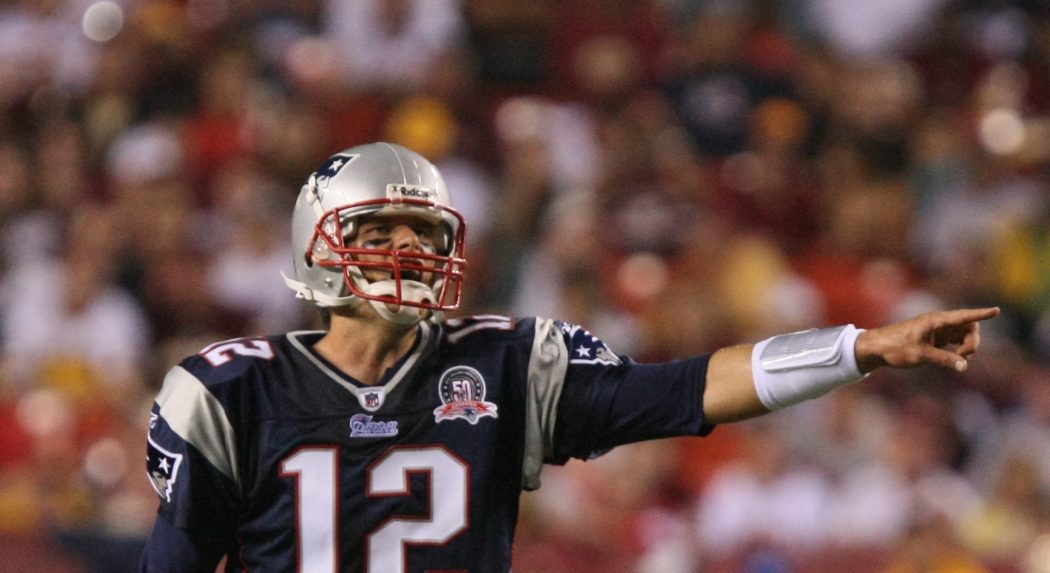Tom Brady, who, more than any other player has defined NFL football in the 21st century, is retiring. Since his rookie season in 2000, he has been at the centre of more of the league’s compelling storylines, provoked more ire, and won many more important football games than any franchise or individual. Over 20 seasons with the New England Patriots, and 2 with the Tampa Bay Buccaneers, Brady has evolved into the greatest quarterback of all-time and, arguably, the NFL’s most hated person. Brady’s retirement is the end of an era (or the belated end of 2 or 3 eras) in quarterbacking, highlighted by Brady himself, as well as Payton and Eli Manning, Drew Brees, and Ben Roethlisberger. Most significantly, the retirement of Tom Brady is the end of the Tom Brady era, of the winning, the quarterback sneaks, and the United States’ nationwide hatred. Tom Brady is the NFL’s greatest player and its greatest villain; football fans should be grateful for both.
Tom Brady is the NFL’s greatest player and its greatest villain;
Undoubtedly, Brady retires as the GOAT. The stats and accolades speak for themselves; he is first all-time in wins, passing yards, passing touchdowns, pro-bowl selections, Super Bowl wins, and Super Bowl MVPs. His seven Super Bowls outnumber those of every NFL franchise. More impressive, those Super Bowl wins were against the great quarterbacks of three separate eras. Kurt Warner (whom Brady played in his sophomore season) and Donovan McNabb, Russell Wilson and Matt Ryan, Patrick Mahomes– each of these quarterbacks came up against Brady and lost. Of course, each of those Super Bowl teams were excellent in their own right, but Brady was the constant. For 22 years, he has represented the high-water mark against which other quarterbacks have been measured.
Yet, to reduce Tom Brady to his stats is to overlook Brady’s unprecedented rags-to-riches story—from beginning as a backup at the University of Michigan and being drafted with the 199th overall pick in the sixth round of the 2000 NFL Draft, to becoming the youngest quarterback ever to win a Super Bowl in only his second season, and finally, to 2022, where he retired having just won his seventh in the previous season.
From that first Super Bowl began the story of Brady’s (along with coach Bill Belichick’s) tyrannical rule over the league. During this era, the Patriots drew ire for two reasons––the winning and the cheating. The latter peaked with the Deflategate scandal, a scheme of the Patriots to slightly deflate balls in the 2014 AFC Championship Game to make them easier to throw and catch.
The public eye turned with disgust upon the Patriots. They were constantly derided, even in class by my middle school teachers, and wearing a Brady jersey became tantamount to making a political statement. Such was public outcry that the NFL carried out an extensive investigation, including testing the effect of deflating balls in a wind tunnel, publishing the results in a 243 page report. Accordingly, Brady was suspended—a decision which he appealed in federal court, much to the exasperation of the public. The importance of this moment can hardly be overstated. New revelations continue to come out on the subject—it even has a brief Encyclopedia Britannica entry. For a while, Tom Brady was among the most hated figures in America.
Rivalries keep sports fresh—you have to have someone to root against—and the protracted rivalry of Tom Brady vs. everyone is the most important sports rivalry of the century so far. People would bond over hating Tom Brady. It was fun to hate him, even when that hatred became overwhelming, as it did for me when the Atlanta Falcons choked against the Patriots in Super Bowl LI. The hate he inspired was prolific, the kind that spreads down into your limbs.
What a surprise it was, then, waking up someday in January of last year to find that the world (myself included) no longer loathed him. In the final—and perhaps the most satisfying—chapter of his career, Brady piloted the Tampa Bay Buccaneers to one last Super Bowl victory over the preseason favourite Kansas City Chiefs. With new teammates alongside him, unblemished by cheating, Brady’s final Super Bowl championship was a redemptive, legacy-defining victory.
With new teammates alongside him, unblemished by cheating, Brady’s final Super Bowl championship was a redemptive, legacy-defining victory.
Debates over Tom Brady’s career will only intensify as the memory of his career and retirement become more distant. He is likely destined for a mythos like that of Michael Jordan as the greatest champion his sport has ever seen. This, however, appears true: Tom Brady’s image as the league’s villain for most of his career is just as much a part of his legacy as his on-field greatness. We should celebrate both.








